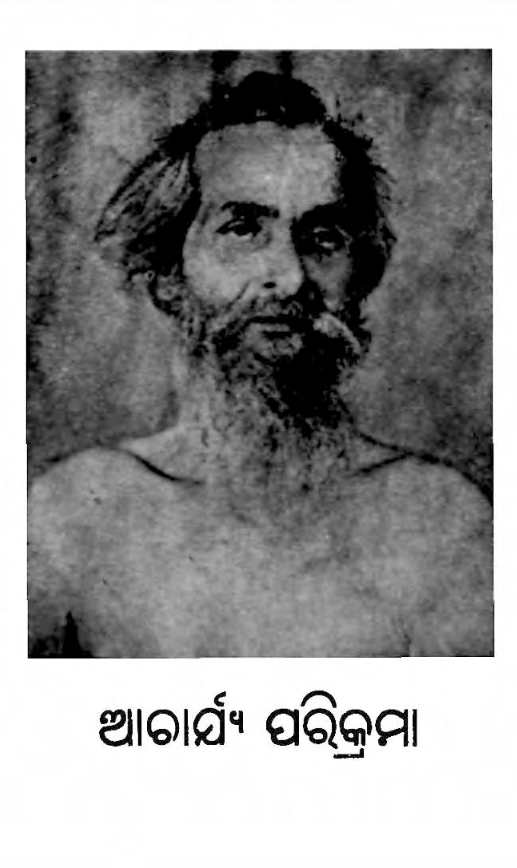Published in 1973, Acharya Parikrama by Nityananda Satapathy is a seminal work that captures the life and philosophy of one of Odisha’s most revered figures in education and spirituality—Acharya Surya Narayan Tripathy. The book is a profound tribute to a man who not only shaped the educational landscape of Odisha but also played a crucial role in promoting the cultural and spiritual ethos of the region.
Acharya Surya Narayan Tripathy, often fondly referred to as Acharya, was a multifaceted personality whose contributions spanned various domains including education, literature, and social reform. His commitment to the upliftment of society through education, particularly for the underprivileged, marked him as a visionary leader. Nityananda Satapathy’s biography paints a heartfelt portrait of Acharya’s life, from his early childhood to his illustrious career.
In Acharya Parikrama, Satapathy meticulously details Acharya’s formative years, illustrating how his upbringing and experiences shaped his character and worldview. Born into a family with modest means, Acharya’s thirst for knowledge was insatiable. The biography recounts his struggles and triumphs against socioeconomic barriers, effectively contextualizing his later achievements.
One of the central themes of the book is education as a vehicle for social change. Acharya firmly believed that education was the key to empowering individuals and communities. Satapathy highlights this commitment by documenting Acharya’s efforts to establish schools and educational institutions in remote areas of Odisha. The biography emphasizes how Acharya’s pedagogical methods were innovative for his time, focusing on holistic development rather than rote learning.
Nityananda Satapathy delves into Acharya’s philosophical insights, which were deeply influenced by both traditional Indian thought and contemporary educational practices. Acharya’s teachings emphasized the importance of moral values, critical thinking, and self-reliance—principles that resonate with the ideals of integral education. Satapathy illustrates how these principles were not merely theoretical but were lived ideals that transformed the lives of countless students and individuals.
The book also incorporates anecdotes and testimonials from those who were directly influenced by Acharya. These personal accounts serve to humanize the figure of Acharya and reflect the profound impact he had on his contemporaries. Satapathy’s narrative is rich with warmth and reverence, making it not just a biography, but a celebration of Acharya’s enduring legacy.
Acharya Parikrama does not exist in a vacuum but is situated within the socio-political landscape of Odisha during the mid-20th century. Satapathy skillfully maps the historical context, providing readers with insights into the challenges and opportunities that defined Acharya’s era. The narrative explores how Acharya engaged with contemporary social issues, including the struggle for independence and the need for educational reforms.
Books Info
| Books name | Acharya Parikrama / ଆଚାର୍ଯ୍ୟ ପରିକ୍ରମା |
| Author | Nityananda Satapathy |
| No Of pages | 143 |
| Publisher | NA |
| Publication | 1973 |
| Printed At | NA |
| Distributor | NA |

